Our Work
Founded in 2014, the Center on Privacy & Technology is a leader at the intersection of privacy, surveillance, and civil rights.
Latest Work

“Resisting the Coercive Convenience of Apps for Everything” blog
Over the years, more and more services have been "app-ified." In reaction to Georgetown Law switching to mobile GOCards (Georgetown's official identification card), Justice Fellow Meg Foster wrote a blog about the increasing consolidation of daily life onto our phones, and the downsides to that consolidation. Read the whole blog here.

CBS: TSA Beginning Face Recognition Pilot Program Despite Privacy Advocates’ Concerns
Justice Fellow Meg Foster spoke with CBS about the TSA face recognition pilot program: "With regard to the TSA pilot, Foster said she has concerns that while the agency says it's not currently storing the biometric data it collects, what if that changes in the future? And while people are allowed to opt out, she said it's not fair to put the onus on harried passengers who might be worried about missing their flight if they do."

“frank Lessons in Communications” blog
In February 2023, Communications Associate Serena Zets attended the frank conference. She wrote on our blog about her experience at the conference and how communications can promote sustained and positive social change. Read the whole blog here: https://medium.com/center-on-privacy-technology/frank-lessons-in-communications-7c50148a9c23.
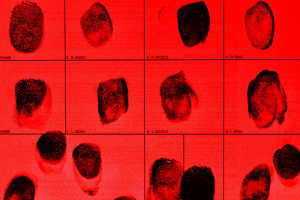
Wired: ICE Records Reveal How Agents Abuse Access to Secret Data
Executive Director Emily Tucker and Associate Nina Wang were quoted in a Wired article revealing how ICE agents have regularly abused their access to surveillance databases, conducting unauthorized searches of exes and coworkers and on behalf of family and neighbors. The article also quotes the Center's report, American Dragnet: Data-Driven Deportation in the 21st Century, which showed that these databases enable ICE "to pull detailed dossiers on nearly anyone, seemingly at any time." “All of that access to bulk data leaves the door wide open for misconduct,”said Wang.
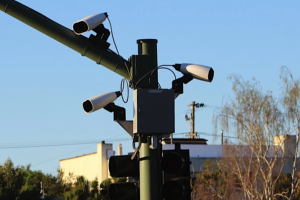
Government Technology Coverage of Cop Out Roundtable
Government Technology published an article covering the Center's event, "Cop Out: Automation in the Criminal Legal System," covering the discussion around what’s at stake for communities subjected to these tools and whether new technology is simply exacerbating long-standing issues in the criminal justice system and reinforcing disparities.
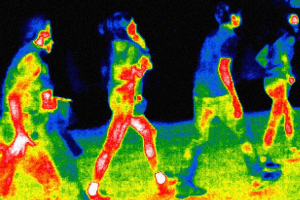
WIRED: ICE is Grabbing Data from Schools and Abortion Clinics
Executive Director Emily Tucker was quoted in WIRED for an article about ICE surveillance. Tucker said, "I can’t help but feel that the federal government is using ICE as a data vacuum. They are looking for any way to access and integrate all kinds of data into massive databases."
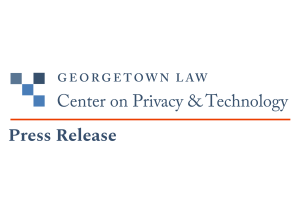
Privacy Center Hosts Launch Event for New Interactive Digital Narrative on Algorithms in the Criminal Legal System
On March 29, 2023, the Privacy Center hosted published a new interactive digital narrative titled "Cop Out: Automation in the Criminal Legal System," which explores the algorithmic technologies that are increasingly used to inform or make critical decisions about policing and punishment. This publication's release was accompanied by an in-person roundtable discussion focused on strategies of resistance. Read the full press advisory.
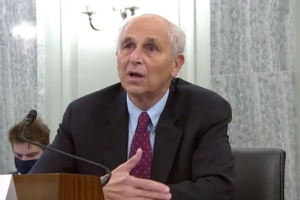
“David Vladeck on FTC Enforcement, Federal Privacy Legislation, and Lessons from the Titanic” blog
Senior Associate Cynthia Khoo interviewed Professor David Vladeck, former Director of the FTC Bureau of Consumer Protection and Faculty Director of the Privacy Center, for our blog. Read the whole blog here.
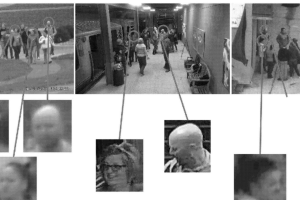
Gizmodo: The FBI Tested Facial Recognition Software on Americans
Justice Fellow Meg Foster was quoted in a Gizmodo story by Mack DeGuerin about a government face recognition program recently exposed through documents obtained by the ACLU. “While Janus may have ended, these documents demonstrate that the prevailing approach to surveillance technology is to put the cart before the horse, and given the growing number of wrongful arrests stemming from face recognition, we know that the most vulnerable among us will experience the consequences first and hardest,” Foster said.
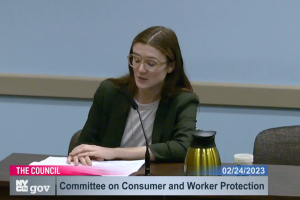
Testimony Before the NYC Council Committee on Consumer and Worker Protection
Justice Fellow Meg Foster testified before the NYC Council Committee on Consumer and Worker Protection advocating for a complete ban on facial recognition technology.
